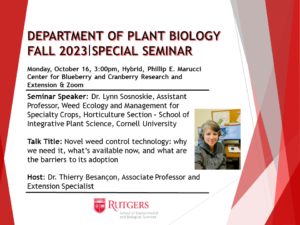- Riesling Tastings
Beneduce Winery: 1 Jeremiah Ln, Pittstown, NJ 08867
Dec 5 (Tue) 9:30 am – 11:30 am - Albarino, Traminnet and Vidal Blanc Tastings
White Horse Winery: 106 Hall St, Hammonton, NJ 08037
Dec 12 (Tue) 9:30 am – 11:30 am
Participants are invited to bring their own wine releases. Each wine tasting will be followed by discussions and anonymous feedback. Please respond to below surveys, on harvest parameters, wine making processes, etc. that will also form the basis for the discussion.
NEW: Anonymous feedback and or score will be provided by the participants after each pouring.
Riesling: https://rutgers.ca1.qualtrics.com/jfe/form/SV_0IJMYiGJ7IWuIho
Albarino: https://rutgers.ca1.qualtrics.com/jfe/form/SV_bCVSmKalWy04xxQ
Traminnet: https://rutgers.ca1.qualtrics.com/jfe/form/SV_dmYBOTnrg3UzPRI
Vidal Blanc: https://rutgers.ca1.qualtrics.com/jfe/form/SV_4IUPndhkhoFRH6e
Registration Required: Registration is $10 for each workshop. Light fare will be served after tastings. Please RSVP to Joan Medany at jmedany@co.gloucester.nj.us or 856 -224 -8030. Checks will be accepted at the door; payable to Rutgers, the State University of New Jersey.
If you have any questions please contact program Coordinators; Hemant Gohil gohil@njaes.rutgers.edu or Megan Muehlbauer Muehlbauer@njaes.rutgers.edu
Sponsored by New Jersey Center for Wine Research and Education

